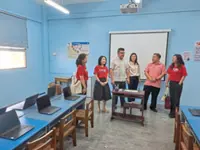An abandoned house in Section 3, Petaling Jaya, has been converted into a community garden with help from PJ SEED fund.
THE Petaling Jaya SEED (Social, Environment and Economy Development) Fund has benefitted 104 community projects since its inception in 2017.
So far, RM6.1mil has been distributed for community betterment under the fund.





